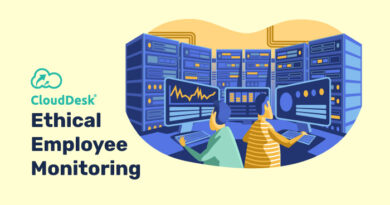In what ways may “no-code” digitally transform the legal industry?
Every industry is undergoing a digital transformation. Modern technology is being utilized to increase efficiency and give better service to consumers and employees to replace old methods and systems.
Because of the delicate nature of the job, there is no room for risk and no tolerance for failure in the legal profession. Therefore, the sector has been slower to accept digital transformation than other industries. According to a Gartner study, 81% of legal departments are unprepared for digitization. Just 33% of attorneys believe their firm is “very ready” to keep up with technology improvements and digital transformation.
On the other hand, legal firms can no longer afford to ignore the digital revolution. Young, tech-savvy lawyers who dislike traditional working methods place a lot of pressure on lawyers to digitize. To thrive in the new digital world, law firms must find a way to overcome existing digital transformation impediments.
The difficulties of transition
Firms’ reluctance to experiment with new technologies may explain the legal industry’s unique characteristics. Large-scale change can be difficult because of reasonable concerns about data security, transparency, compliance, and client confidentiality. Furthermore, many companies continue to rely on many outdated systems that are difficult to integrate with contemporary technology. Because of the proliferation of technology, obtaining a complete picture of a single consumer is getting increasingly challenging. Because of the administrative complexity companies have previously faced, disputes have taken longer to resolve, and more clients have gone unsatisfied.
To date, overcoming these challenges has needed professional developers and extensive IT resources. New working methods need a willingness to experiment, which would mark a substantial cultural shift in an industry where failure is frowned upon. In recent years, even the most hesitant companies have found it impossible to resist reviewing corporate processes. The COVID-19 outbreak accelerated most firms’ digital transformation initiatives by forcing them to embrace work-from-home policies and conduct client meetings and hearings online. As a result, according to the Wolters Kluwer poll, companies that had previously deployed modern tech solutions were better prepared to give remote support to consumers at the beginning of the epidemic.
Law firms are ready to look at how technology might help them grow their business, enhance efficiency, and offer new revenue and client service alternatives since they’ve already started on the path to digital transformation.
Developing software without writing any code
Due to “modern technology, companies may now grow quickly and safely. The legal industry may economically and rapidly construct complex digital solutions by utilizing a no-code platform for corporate development. The use of no-code simplifies the development of game-changing connections, applications, and automation. An easy-to-use building block approach enables developers to quickly generate solutions without writing any code, reducing the developer’s burden. High-coders may also improve some platforms’ basic no-code functionalities by creating reusable connectors.
The ability to combine no-code apps and automation seamlessly is a significant benefit for law firms that use them. Applications may be easily included in automation programs to streamline operations and decrease repetitive, time-consuming tasks. This time may be reinvested in the firm as a legal staff is freed up to offer an amazing client experience.
Changing the legal system
No-code apps and automation have the potential to transform the legal sector’s operations and services in a variety of ways. Legal personnel, for example, may develop an app that offers a summary of all cases, including their current status and profitability. Case management systems are vital to a company’s operations and, at times, a source of annoyance, but the quality of information is continually jeopardized since manual tasks are prone to human error. Using a no-code enterprise development platform, companies may quickly join systems and get a unified view of relevant details that is more accessible to key stakeholders.
Automating KYC checks and combining them with popular biometric ID verification and fraud protection systems such as CloudABIS are now both achievable without the assistance of a third party. No-code may also be used to create a legal CRM to record client information, meeting plans, and other data. Lawyers at coding can choose their schedules and follow up with clients at their leisure. A bespoke legal CRM application not only improves the lawyers’ experience but also minimizes manual administration, freeing up people to focus on higher-value duties.
A watershed moment for technology
There is no question that implementing a digital workstyle may help enhance productivity and attract new staff and clients. Until recently, legal firms faced insurmountable obstacles to digital transformation. A no-code corporate development platform with apps and automation might be a game-changer in the legal industry. Companies may gradually modernize their operations and embrace the digital revolution at little cost and risk.











